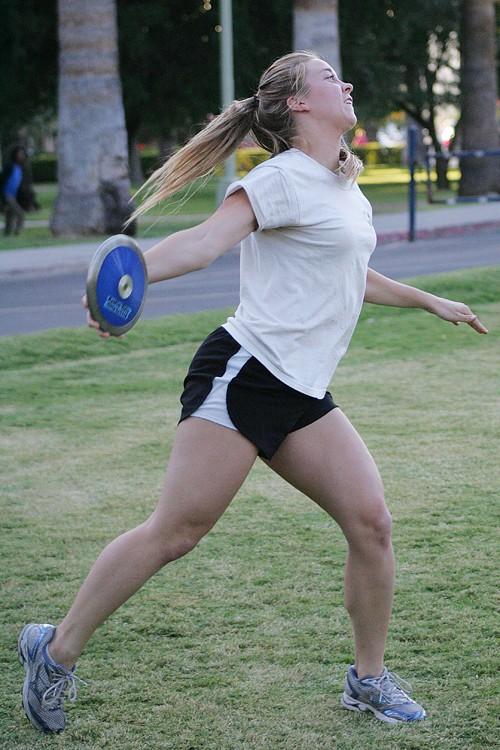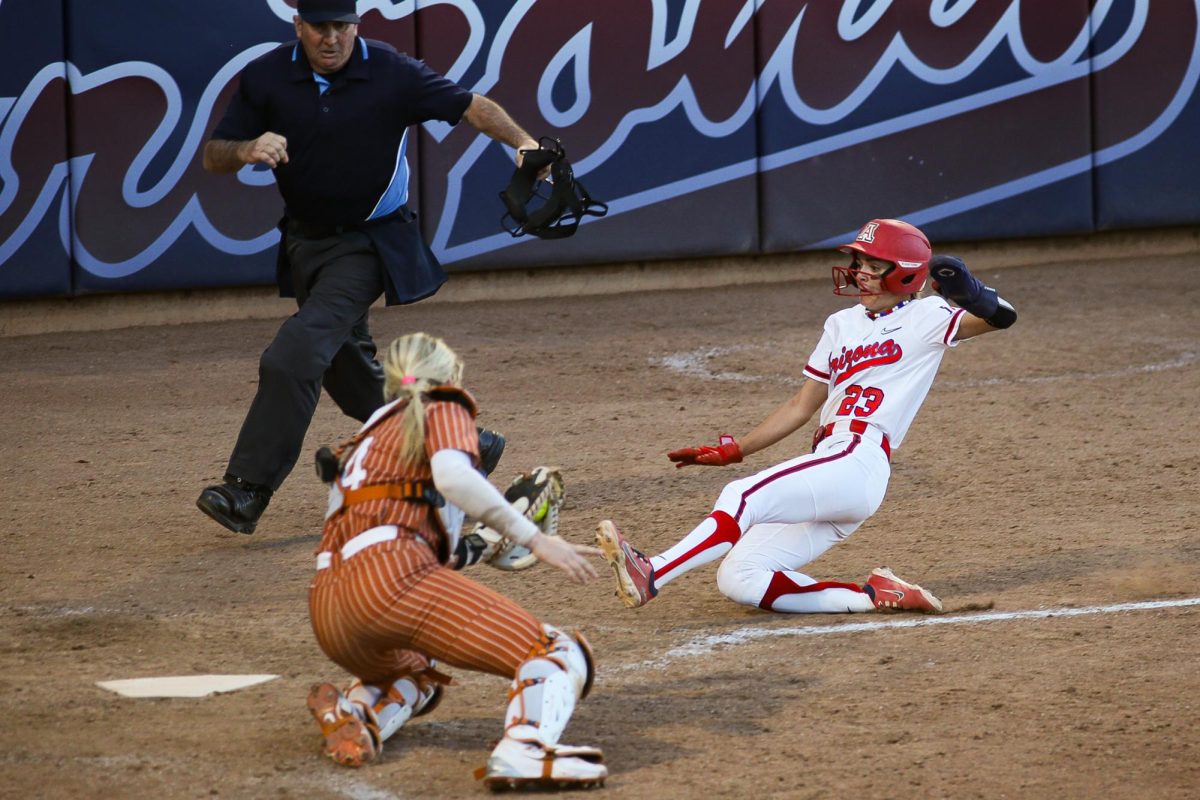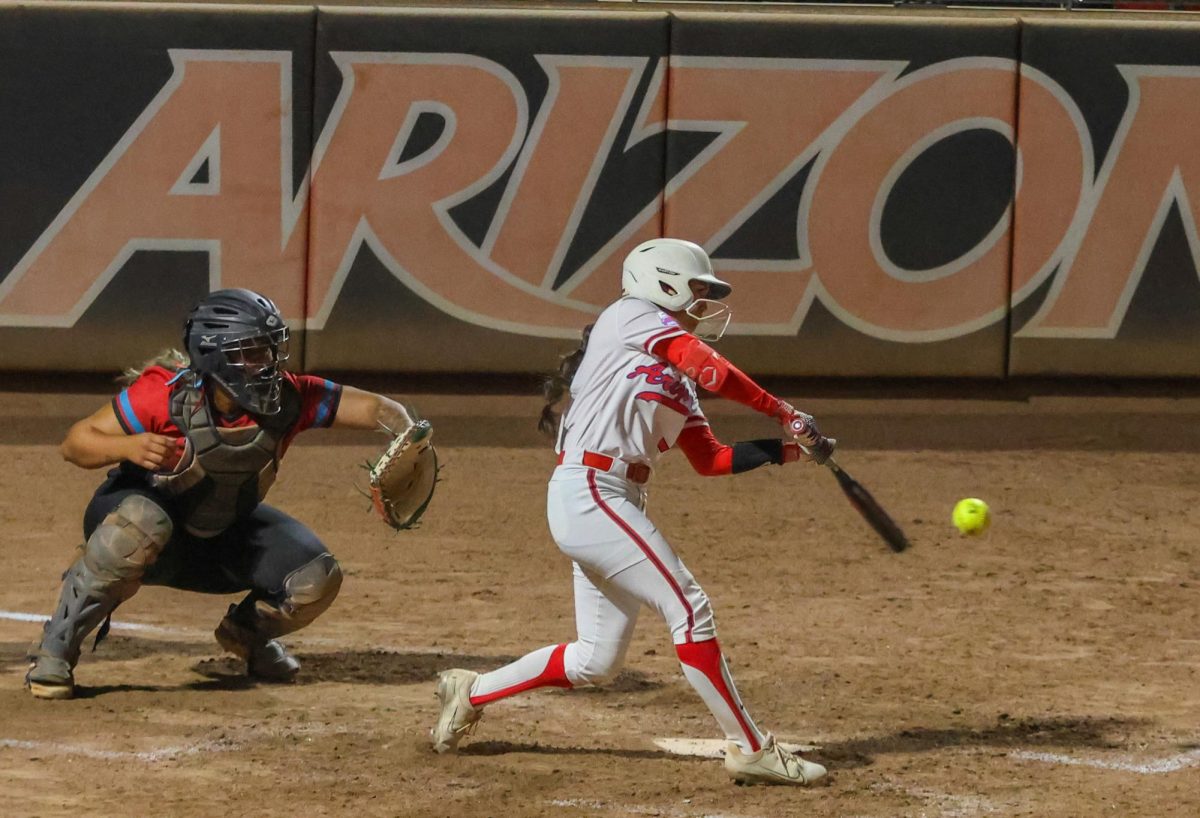Lecture hall courses are supposed to be boring, but that doesn’t mean they always are.
Professor Mike Lippman is head of CLAS240, Ancient Athletics, and has taken a lively approach to getting his material across in an effort to critically examine athletics and their role in society.
“”I don’t really talk to other staff members (about material ideas for class),”” Lippman said Tuesday afternoon. “”I talk to my wife and she’ll tell me if I crossed a line.””
In this course, casual nap-takers are rewarded with an on-the-spot pop quiz, “”Immortals”” are named and everything from the javelin to ancient prostitution is fair game for discussion.
“”I love it, oh God, it’s wonderful,”” Lippman said of picking on nappers. “”I used to want to bring in a super soaker to wake kids up.””
In the Social Sciences 100 lecture hall setting of nearly 500 students, Lippman has to stay on top of his game to keep material interesting and relevant. He refuses to see his classroom setting as the behemoth that it is and would rather pretend that it is like the 20-30 student rooms to which he is accustomed.
“”I would suspect that there are a lot of cranky people that want to hide in the back and scoot by with a C for no work,”” Lippman said. “”I’ve had a lot of people tell me that they do that in other classes, but they won’t in mine.””
In addition to Lippman’s entertaining stage presence, students truly care for what it is he teaches.
“”I think he’s a little crazy, but otherwise he’s a great teacher and gets the point across,”” senior Andrew Levy said. “”He understands the students and makes it more fun than straight lecture.””
Lippman holds open debates during classes on a regular basis and has even gone so far as to hold athletic simulations on the UA Mall for any students brave enough to try out ancient techniques.
In what may appear to be all fun and games, Lippman testifies to an often-overlooked facet of college instruction.
“”The best skill is learning how to be skeptical of sources, and the fact that it’s about sports here suckers everyone into thinking that it’s more exciting than it really is,”” Lippman said.
“”This school has a massive athletic presence — for this school to think about the role of athletics in the academy, it’s more important here. In our class really we’re talking ancient athletics and modern Olympics, but really we’re talking about the role of athletics in your career as a college student.””
He went on to point out how even the Daily Wildcat sets aside more space in the newspaper for sports than it does for the news section on a somewhat-regular basis. Lippman also noted the significant difference in generalized coach’s salaries as opposed to curriculum professors at the same institution.
Lippman wants students to question why sports are almost “”sacred”” to modern society and if that sacredness is OK.
“”Just because a guy can get beat up on a football field, does that mean he deserves the education that is the exact same piece of paper as someone who is brilliant? I won’t necessarily judge it one way or another, but that’s what the class is thinking about,”” Lippman said.
Apparently his approach is working, because it’s got students thinking.
Junior Karlen Ross said that this course is one of the most entertaining he’s ever had.
“”Classics is a really dry subject and it’s a lot of history and it’s hard to wrap your head around why it matters,”” Ross said. “”But Professor Lippman does a good job of making it come alive and ties it into the root of modern thought and philosophy.””
With such a colorful athletic spectrum as ancient Greece, Lippman admits that the class content does a lot of the work for him.
“”On some levels this is sexy and sells itself,”” Lippman added. “”If you can get students interested in the material, then the topic is on some level not as important as the skill of questioning.””









